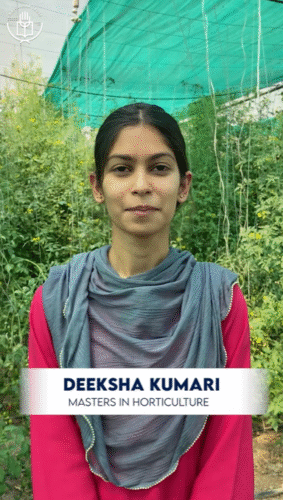Innovation Meets Cultivation at Eternal University
At Eternal University, Baru Sahib, research and innovation go hand in hand to solve real-world agricultural challenges. With a strong commitment to sustainability and scientific excellence, the university is exploring the power of nano fertilizers to revolutionize horticulture.
Breakthrough Research by Eternal University’s Horticulture Department
Deeksha Kumari, a Master’s student in Horticulture at Eternal University, under the expert guidance of Dr. Amit Saurabh, is conducting an insightful study on the use of nano zinc and nano iron in cherry tomato cultivation.
Her research examines how these nano nutrients influence plant growth, production, and quality, setting a benchmark for sustainable and efficient farming techniques.
Why Eternal University Promotes Nano Fertilizers
At Eternal University, researchers believe in nurturing the soil as much as the crops. Nano fertilizers—thanks to their tiny particle size and higher bioavailability—offer a modern solution to age-old problems of nutrient wastage and environmental pollution.
Benefits of nano fertilizers include:
- Higher nutrient absorption by plants.
- Increased yield and improved fruit quality.
- Reduction in chemical fertilizer usage.
- Environmentally-friendly agricultural practices.
Impact of Research – Cherry Tomatoes Thrive
Cherry tomatoes are a significant horticultural crop, known for their taste and nutritional value. Deeksha’s research at Eternal University aims to:
- Enhance yield and productivity of cherry tomatoes.
- Improve fruit color, size, and shelf life.
- Minimize dependency on conventional fertilizers.
These findings are expected to empower farmers with more sustainable and profitable farming methods.
Eternal University – Leading the Way in Agricultural Innovation
Eternal University’s focus on holistic education and cutting-edge research is creating pathways for students to contribute meaningfully to society. This study on nano fertilizers is just one example of how the university is addressing global food security and sustainability challenges through science and innovation.












Add comment